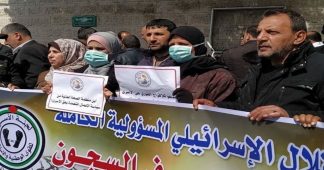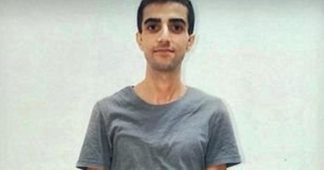In relation to the case of 63 year-old prisoner Dimitris Koufondinas who is currently on a lengthy hunger-strike in protest of his transfer from the Rural prison of Kassavetia to Domokos prison instead of Koridallos prison according to the recent law 4760/2020, Amnesty International strongly urges the Greek authorities to adhere with the recommendations of the Greek Ombudsman and provide the prisoner with access to the transfer decisions from Kassavetia as well their reasoning. The organization has been informed by the prisoner’s legal representative that the failure of the authorities to provide such access has deprived him from the opportunity to challenge these decisions.
Amnesty International has also been informed that Dimitris Koufondinas has been transferred from Kassavetia prison to the overcrowded Domokos prison in circumvention of the decision of the authorities to suspend prisoners’ transfers during the pandemic and has to share a cell with two other prisoners. The organization wishes to draw the attention of the Greek authorities to the United Nations Standard Minimum Rules for the Treatment of Prisoners (Mandela Rules) that call for each prisoner to occupy a cell or room by himself/herself and for prisoners to be allocated, to the extent possible, to prisons close to their homes or their places of social rehabilitation.
The organization reiterates that a hunger striking prisoner must be able to effectively exercise their right to health. They should have adequate access to qualified health professionals providing health care in compliance with medical ethics, including the principles of confidentiality, autonomy and informed consent. A person’s hunger strike must not prejudice any other aspect of their health care. The authorities must never require health professionals treating hunger strikers to act in any way contrary to their professional judgment or medical ethics.
Amnesty International also wishes to reiterate its serious concerns over the conditions in Greek prisons. In a report published on 9 April 2020, the European Committee for the Prevention of Torture highlighted systemic problems in Greece’s prisons including overcrowding, widespread deficiencies regarding the state of health care services in prisons and chronic shortage of staff. Recent statistics of the Ministry of Citizens’ Protection are indicative of the overcrowding in most prisons. For example, Ioannina prison has capacity for 66 prisoners and holds 128; Komotini for 162 and holds 316; and Domokos for 600 and holds 713.
The organization wishes to remind the Greek authorities that people in detention, as well as staff, in often overcrowded prisons face high risk of infection in a setting where it is particularly difficult to implement preventive measures, such as physical distancing and isolation. Prison conditions also make maintaining hygiene standards difficult, which increases the risks of contracting and spreading the disease.
In order to minimise the spread of the coronavirus and mitigate the health risks, Greece should ensure that prisoners have access to clean water, sanitation and personal hygiene products, including soap and sanitiser, to be able to maintain the required hygiene level. Additionally, the authorities should consider measures to temporarily reduce prison population, including by releasing children and pre-trial detainees, and considering the early or conditional release of prisoners especially at risk, such as older prisoners or those with serious medical conditions, including those with a weakened immune system.











